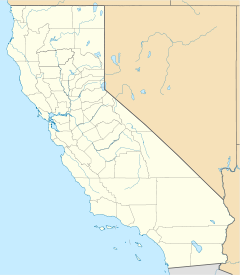Continental Building
| Continental Building | |
|---|---|
 | |
| Alternative names | Braly Building Hibernian Building Union Trust Building Old Bank District Apartments |
| General information | |
| Status | Completed |
| Type | Residential condominiums |
| Location | 408 South Spring Street Los Angeles, California |
| Coordinates | 34°02′55″N 118°14′54″W / 34.0486°N 118.2482°W |
| Completed | 1903 |
| Owner | Old Financial District LP |
| Height | |
| Roof | 45.87 m (150.5 ft) |
| Technical details | |
| Floor count | 13 |
| Floor area | 56.5 million sq in (365 million cm2) |
| Design and construction | |
| Architect(s) | John Parkinson George Edwin Bergstrom Killefer Flammang Architects |
Continental Building | |
| Architectural style | Beaux-Arts |
| Part of | Spring Street Financial District (ID1979000489) |
| LAHCM No. | 730 |
| Designated CP | 1979 |
| References | |
| [1][2][3][4] | |
The Continental Building, formerly Braly Block, is a 151 ft (46 m), 13-story high-rise residential building on Spring Street in the Historic Core of Los Angeles. The Continental Building is part of the Spring Street Financial District which is listed on the National Register of Historic Places.[3][4]
When completed in 1903, it was the city's first high-rise building, and remained the tallest commercial building for fifty-three years. Shortly after the building was completed, the Los Angeles City Council enacted a 150 ft (46 m) height restriction on future buildings that remained until the 1950s.[5][6]
The building was originally named after John Hyde Braly, the president of a business accredited with commissioning the building. Braly moved to Los Angeles in 1891 before eventually contributing to the erection of Braly Block.[7]
Gallery
- Braley Building, c. 1900-1903
- Continental Building when home to the German American Savings Bank, 1908
- Continental Building - 408 S. Spring Street
In popular culture
The building plays a prominent role in the 2009 independent film (500) Days of Summer.[8]
See also
International Savings & Exchange Bank Building, 10-story structure built in the same area in 1907 and using the same architectural styles
References
- ^ "Emporis building ID 146991". Emporis. Archived from the original on February 14, 2016.
{{cite web}}: CS1 maint: unfit URL (link) - ^ "Continental Building". SkyscraperPage.
- ^ a b "California Office of Historic Preservation Certified Tax Projects – 2005 (Fiscal Year)" (PDF). Retrieved May 2, 2008.
- ^ a b "National Register Information System". National Register of Historic Places. National Park Service. 1979. Retrieved November 15, 2010.
- ^ Department of Geography. "Continental Building and the 150-Foot Height Limit". Downtown Walking Tour. University of Southern California. Archived from the original on February 24, 2008. Retrieved November 15, 2010.
- ^ Schnalzer, Rachel (January 26, 2022). "Why is L.A.'s iconic skyline far from the beach — unlike Miami, Seattle and other cities?". Los Angeles Times. Retrieved January 26, 2022.
- ^ "Continental Building | Los Angeles Conservancy". www.laconservancy.org. Retrieved November 20, 2022.
- ^ "Go On Location: Locations Featured in "500 Days of Summer"". Discover Los Angeles. Retrieved January 29, 2018.
Further reading
- Roseman, Curtis C.; Ruth Wallach; Dace Taube; Linda McCann; Geoffrey DeVerteuil (2004). The Historic Core of Los Angeles. Los Angeles: Arcadia Publishing. pp. 35–38. ISBN 0-7385-2924-9.







